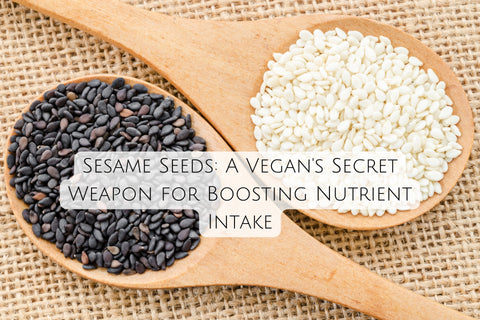Welcome to Mango Magic, where we delve into the irresistible allure and remarkable health benefits of mangoes, nature's golden gems. In this blog, we'll uncover why mangoes are more than just a delicious tropical fruit—they're a superfood packed with nutrients and goodness that you shouldn't miss out on. Get ready to indulge in the juicy sweetness of mangoes while nourishing your body from the inside out.
The Mango Marvel:

Here's the story of the magnificent mango, its journey from ancient times to become the king of fruits in many cultures:
Ancient Origins in Asia (Over 5,000 Years Ago)
- The mango's birthplace is believed to be the region stretching from northwestern Myanmar, Bangladesh, and northeastern India.
- Evidence suggests cultivation in both South and Southeast Asia since ancient times, leading to the two main mango types we know today - the "Indian type" and the "Southeast Asian type."
- References to mangoes appear in Hindu writings dating back to 4000 BC, signifying its deep cultural significance.
- Buddhist monks cultivated and revered the mango tree, with Buddha himself said to have meditated under its shade.
The Spread of the Mango (300 AD - 1600s)
- Around 300 AD, mango seeds traveled with humans from Asia to the Middle East, East Africa, and even South America.
- This movement likely occurred through trade routes and human migration.
Westward Expansion and Commercialization
- The Portuguese, who arrived in India in 1498, were the first Europeans to document the mango and adopted the name "manga" from the Malayalam language.
- Cultivation of mangoes moved westward with the spice trade, introducing them to new regions and palates.
- Spanish explorers brought mangoes to South America and Mexico in the 1600s, where they flourished in the tropical climate.
A Global Favorite (1800s - Present)
- The 1800s saw increased efforts to cultivate and commercially grow mangoes around the world.
- Today, mangoes are grown in many tropical and subtropical regions, with India remaining the world's leading producer.
- The fruit's popularity continues to soar due to its delicious taste, versatility in cuisine, and potential health benefits.
Nutrient Powerhouse:

Vitamins:

- Vitamin C Champion: Mangoes are one of the richest fruit sources of vitamin C, boasting over 75% of your daily needs in one cup (165 grams). Vitamin C is vital for a healthy immune system, helps with collagen production for healthy skin, and promotes iron absorption.
- Vitamin A Bonanza: This essential vitamin contributes to healthy vision, cell growth, and immune function. A single cup of mango fulfills around 10% of your daily vitamin A requirement.
- B Vitamins: Mangoes contain a good amount of B vitamins, including B6, B9 (folate), and thiamine. These B vitamins play a crucial role in energy metabolism, brain function, and cell health.
- Vitamin E: This antioxidant vitamin safeguards cells from damage and may contribute to healthy skin and vision. Mangoes provide a small amount of vitamin E towards your daily needs.
Minerals:

- Potassium Powerhouse: Mangoes are a good source of potassium, a mineral that helps regulate blood pressure and muscle function. One cup of mango offers around 6% of your daily potassium needs.
Other Notable Nutrients:

- Fiber: Mangoes contain a decent amount of fiber, aiding digestion and promoting gut health.
- Antioxidants: Mangoes are rich in various antioxidant compounds like beta-carotene, mangiferin, and others.
Heart Health and Beyond:

A Heart-Healthy Contender:
- Fiber for the Win: Mangoes are a decent source of fiber, which can help lower LDL ("bad") cholesterol levels and promote heart health. Fiber aids in digestion and elimination of cholesterol-laden bile from the body.
- Potassium Power: This essential mineral found in mangoes helps regulate blood pressure, a key factor in heart health.
- Antioxidant Advantage: As mentioned earlier, mangoes are rich in antioxidants that combat free radicals and reduce inflammation, potentially lowering the risk of chronic diseases like heart disease.
- Studies Suggest Promise: Some initial research suggests that regular consumption of mangoes may help improve certain heart health markers, such as blood pressure and cholesterol levels.
Beyond the Beating Heart: A Well-Rounded Approach
Mangoes and Diabetes:

While mangoes are naturally sweet, they have a moderate glycemic index (GI) score. In moderation, they may be part of a diabetic diet. Speak with your doctor for personalized advice.
Digestive Health:

The fiber content in mangoes can promote digestive regularity and gut health.
Eye Health:

Vitamin A in mangoes contributes to healthy vision and may help prevent night blindness.
Skin Health:

Vitamin C and antioxidants in mangoes can promote healthy skin and may reduce the appearance of wrinkles. However, a well-rounded skincare routine and sun protection are essential..
Conclusion:
As we conclude our journey through the world of mangoes, we hope you're inspired to embrace this superfood and reap its myriad health benefits while indulging in its sweet and succulent flavor.
Whether you're enjoying mangoes fresh, frozen, or in your favorite recipes, let their mango magic enrich your life with vibrant health and delicious delight. Here's to the golden goodness of mangoes—a superfood you definitely shouldn't miss!




Comments (0)
There are no comments for this article. Be the first one to leave a message!